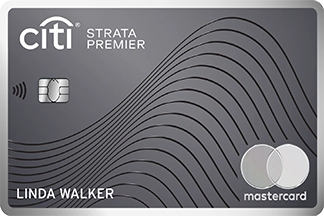- myFICO® Forums
- FICO Scoring and Other Credit Topics
- General Credit Topics
- What is the correct value that a card issuer repor...
- Subscribe to RSS Feed
- Mark Topic as New
- Mark Topic as Read
- Float this Topic for Current User
- Bookmark
- Subscribe
- Mute
- Printer Friendly Page
What is the correct value that a card issuer reports to CRA?
Is your credit card giving you the perks you want?
Browse credit cards from a variety of issuers to see if there's a better card for you.
- Mark as New
- Bookmark
- Subscribe
- Mute
- Subscribe to RSS Feed
- Permalink
- Report Inappropriate Content
What is the correct value that a card issuer reports to CRA?
I wonder what is the correct value that a card issuer reports to the credit bureau. Let's assume the following situation about a credit card:
Dec 5: billing cycle end date, statement due $100
Dec 7: new purchase using the card, $20 (to be paid next statement)
Dec 10: card issuer reports to CRA.
In this situation, what's the value reported by the card issuer to CRA? $100 or $120?
- Mark as New
- Bookmark
- Subscribe
- Mute
- Subscribe to RSS Feed
- Permalink
- Report Inappropriate Content
Re: What is the correct value that a card issuer reports to CRA?
It's dependent on the bank's reporting guidelines since there are a few that are different like US Bank but generally the statement balance is the value that gets reported to the bureaus so in your example it's $100
- Mark as New
- Bookmark
- Subscribe
- Mute
- Subscribe to RSS Feed
- Permalink
- Report Inappropriate Content
Re: What is the correct value that a card issuer reports to CRA?
Thank you for your reply.
Another question. Let's assume another situation:
Dez 5: billing cycle end date, statement due $ 100
Dez 8: one pays in advance the whole statement.
Dez 10: card issuer reports to CRA.
In this case, the report will be $ 100 or 0?
- Mark as New
- Bookmark
- Subscribe
- Mute
- Subscribe to RSS Feed
- Permalink
- Report Inappropriate Content
Re: What is the correct value that a card issuer reports to CRA?
@Fernando1 wrote:Thank you for your reply.
Another question. Let's assume another situation:
Dez 5: billing cycle end date, statement due $ 100
Dez 8: one pays in advance the whole statement.
Dez 10: card issuer reports to CRA.
In this case, the report will be $ 100 or 0?
As with the previous situation it would be lender dependant. Most lenders will report the balance on cycle end. If you pay it off after the fact, chase would report the new zero balance as soon as it posts. Then you have other lenders like synchrony where they'll report the cycle balance and could report again if you make a purchase afterwards.


- Mark as New
- Bookmark
- Subscribe
- Mute
- Subscribe to RSS Feed
- Permalink
- Report Inappropriate Content
Re: What is the correct value that a card issuer reports to CRA?
@Fernando1 wrote:I wonder what is the correct value that a card issuer reports to the credit bureau. Let's assume the following situation about a credit card:
Dec 5: billing cycle end date, statement due $100
Dec 7: new purchase using the card, $20 (to be paid next statement)
Dec 10: card issuer reports to CRA.
In this situation, what's the value reported by the card issuer to CRA? $100 or $120?
The card issuer reports the balance as of the reporting date.
In most cases the reporting date is the statement date. In those cases, the statement balance is the date reported.
Due dates, purchases, etc., have nothing to do with it.
Also bear in mind that "most cases" does not mean all cases, there are many exceptions to the statement date being the reporting date.
Synchrony often reports the balance randomly.
Some institutions report the balance as of the 1st of the month.
One I know reports the balance as of the 5th of the month.
Chase reports balances on the statement date, but also whenever an account is paid down to zero.
I have a revolving account with PenFed for which the reporting date varies as much as 8 days.































Total revolving limits 568220 (504020 reporting) FICO 8: EQ 689 TU 691 EX 682
- Mark as New
- Bookmark
- Subscribe
- Mute
- Subscribe to RSS Feed
- Permalink
- Report Inappropriate Content
Re: What is the correct value that a card issuer reports to CRA?
@Fernando1 wrote:Thank you for your reply.
Another question. Let's assume another situation:
Dez 5: billing cycle end date, statement due $ 100
Dez 8: one pays in advance the whole statement.
Dez 10: card issuer reports to CRA.
In this case, the report will be $ 100 or 0?
If the issuer reports as of the statement date, and you pay it down to zero before the statement date, it will report zero.































Total revolving limits 568220 (504020 reporting) FICO 8: EQ 689 TU 691 EX 682